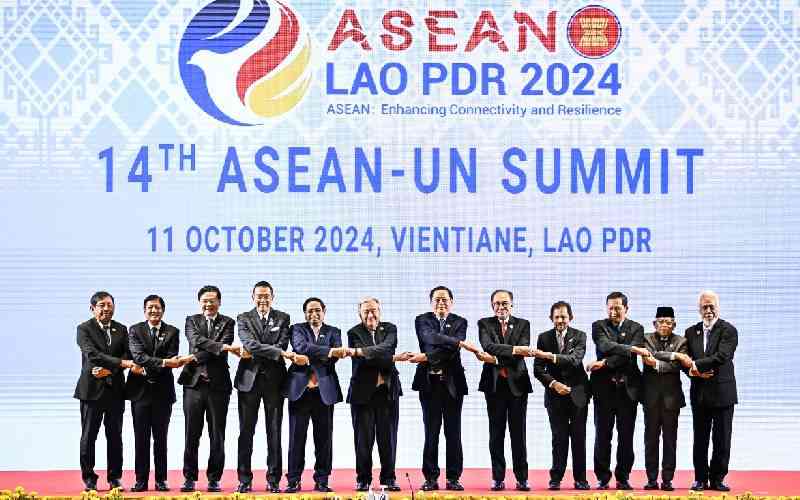By XN Iraki
The gospel of free enterprise has been preached for generations as the perfect solution to our economic problems. This gospel got more credibility when communism came tumbling down in late 1980s. Even China could not resist, opting for communism in politics but free enterprise in economics.
The market system as the free enterprise is often called is supposed to allow individuals pursue their own interests within the constraints of laws, regulations, morality, space, and the little time we are guests on this small planet.
Academics preach this gospel with unusual conviction, offering each generation of students, a tonic for future problems. Some ask loudly why this system with all its power cannot solve some of the world’s biggest problems from joblessness to inflation.
downplay dark side
Why are so many economic problems still plaguing the world? Economists argue almost to the point of conviction that the alternatives to market system are worse and have been tried, from feudalism to communism. However, proponents of the market system either deliberately or by chance downplay one dark side of the system, vested interests.
As the market system evolved, so did the holy unholy alliance between politics and economics. Each group realised its interests could be best served by the other.
Countries are led by political parties. The party members have vested interests. In public, they want to make the society better. In reality they want to make themselves better, then the society. The entrepreneurs or businessmen as they often called have their interests too, to make profits, lots of it.
But they are often constrained by the politicians who set rules and regulations. To better each other’s interests the two groups come together. In Kenya, it is more interesting because they are often the same people.
If there were no vested interests, some argue there would be free entry and exit into every nascent industry, including politics.
But the reality is that this entry is often restricted, legally, with players having an illusion of competition. By restricting players in any industry, more profits can be made. Lobbying is about coming up with rules that cater for vested interests.
Look carefully at any proposed bill or by-laws and you will see the shades of vested interest. Politicians like MPs and regulators (appointed by politicians) often hide under public interest like safety, to pursue vested interests.
No idea
Few political and economic proposals are neutral, completely objective, even in developed countries.
The world of regulations, laws and their complexity is the domain of the chosen view. Majority of the people have no idea what happens. They just obey the rules and talk.
Stay informed. Subscribe to our newsletter
The vested interests make the rules and ensure they are followed. How else do you explain that in any democratic country, small elite monopolises wealth, and prestige, leaving the majority as spectators?
The vested interests in politics, espoused by political parties cascade to other institutions mostly through associations, which ensure that if there are any new rules or regulations, their interests are taken care of.
Neutral language
Why do you think every association want representation in the constitution review process?
Such associations (including NGOs) have held the economic and political systems hostage, ensuring that if there are any reforms, they are carried out in certain ways, to ensure their vested interests are taken care of. Most of the vested interests are economic in nature, but couched in neutral language.
The current call for reforms in Kenya is driven by vested interests, each political party, has interests to protect, including the international community.
Reforms, upset the current state of vested interests espoused in terms of jobs, supply contracts, and even prestige. Why else are reforms taking so long?
Where do we go from here? The nature of man is that he will always pursue his own interests. Political systems were invented to limit this self-interest.
But in countries like Kenya, where political systems have not evolved enough, the systems are used to further self-interests. Adam Smiths’s ingenuity lies in his view that we can use this self-interest to further society’s interests.
Our economists, politicians and policy makers can do us a lot of good if they harness our self-interest (including greed) to improve the society.
Any reforms ought to benefit the greatest number of people. This view needs lots of creativity to implement, yet it holds the master key to our reform agenda. But few Kenyans can articulate reforms they need, beyond regime change and possibility of a member of his own community becoming the next head of State.
Few talk of the reforms they need to undertake in their own thinking and lives, where it might matter more than the political reforms.
Those who have lived in the West or East know the role the families play in transforming society.
Our obsession with political reforms may be our soft belly. Some of the most critical reforms cannot be legislated like the number of kids you have.
Reforms in addition to taming self-interest, has to uproot deeply entrenched cultures. Vested interests are often deeply entrenched with tentacles that at times span the globe.
Any reforms in Kenya will often touch someone economically somewhere on this small planet. Yet, we need to tame vested interests so that the vast majority can enjoy life. That is easier said than done as the 20 years journey to new constitution shows.
—The writer ([email protected]) is a lecturer at the University of Nairobi, School of Business.
 The Standard Group Plc is a
multi-media organization with investments in media platforms spanning newspaper
print operations, television, radio broadcasting, digital and online services. The
Standard Group is recognized as a leading multi-media house in Kenya with a key
influence in matters of national and international interest.
The Standard Group Plc is a
multi-media organization with investments in media platforms spanning newspaper
print operations, television, radio broadcasting, digital and online services. The
Standard Group is recognized as a leading multi-media house in Kenya with a key
influence in matters of national and international interest.
 The Standard Group Plc is a
multi-media organization with investments in media platforms spanning newspaper
print operations, television, radio broadcasting, digital and online services. The
Standard Group is recognized as a leading multi-media house in Kenya with a key
influence in matters of national and international interest.
The Standard Group Plc is a
multi-media organization with investments in media platforms spanning newspaper
print operations, television, radio broadcasting, digital and online services. The
Standard Group is recognized as a leading multi-media house in Kenya with a key
influence in matters of national and international interest.








